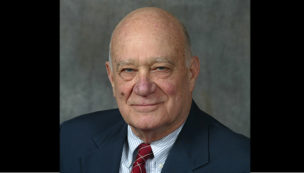
Sex topics for parents with rising adolescents have never been easy.
Discussing what euphemistically was referred to as the “birds and the bees” was also described as having “the talk.”
Now, we urgently need another version of “the talk” – this time by adult children interacting with their own aging parents.
These discussions seem to be as difficult and uncomfortable as the earlier sex talks.
Yet, they may be more important. How do families address legal and personal implications of end-of-life realities?
A major problem for all involved, of course, is recognizing when such talks should occur.
Not to engage is to strew uncertainty – even legal distress – on the survivors, as well as lingering emotional travails.
In our time of the aging of the aged, when many folks are living into their 80s and 90s, even their adult children would be considered “old” by standards of the not so distant past. So, we can note that children in their 50s have parents in their 70s and 80s, while the parents of children in their 60s can span into their 90s and past the century mark.
Last year when I attended my 60th college reunion, the ranks of my classmates were severely diminished.
At my 50th reunion, we were sent a list of the “deceased;” for our 60th we received a tally of “the departed.”
Our generation had already exceeded life expectancy so it was not surprising that dead classmates outnumbered those “still above the grass,” (as humorist Malachy McCourt has described us).
Grief for my lost classmates was accompanied by deep concerns for those who were unable attend because of serious health issues or from dementia (sometimes affecting partners). Naturally, we were mindful of end-of-life considerations.
More than two decades ago, I played a small role as a consultant for a TV documentary that riveted the older person’s version of “The Talk” in my mind.
I was invited to contribute ideas to Bill Moyers’ project “On Our Own Terms.”
Working with his wife, Judith (as producer), Moyers typically was ahead of the social and historical curve in focusing sharply on end of life challenges.
Today, that documentary is more relevant than ever. In addition to the pleasure of associating with Bill and Judith (who I had known since their decades of residing in Garden City), our project also included Marilyn Webb, whose mother was regularly attending my programs at Great Neck Library.
I vividly recall how stunned my precocious 7-year old daughter was when she saw the title of Marilyn’s book on my desk, “The Good Death.”
Few people, certainly not children, regard the end of life in an affirmative fashion.
However, what Marilyn did, and what the Moyers achieved in their documentary, is precisely what having “The Talk” in 2018 is intended to accomplish.
Bill and Judith spent two years on their project and it concluded: “There is a great divide separating the kind of care Americans say they want at the end of life and what our culture currently provides.”
“Surveys show that we want to die at home, free of pain, surrounded by the people we love. But the vast majority of us die in the hospital, alone, and experiencing unnecessary discomfort.”
The Unitarian Church in Manhasset (as one of its many creative programs) sponsors “Death Cafes.”
That is not as macabre as it may sound.
John McCain has received deserved accolades during the past week as he discussed his end of life considerations (while he met regularly with relatives and close pals – who span the political divides).
Friends hope McCain will be alive to see his new book published on May 22.
The superb columnist, Timothy Egan, has written of “John McCain’s Lesson Before Dying.”
Social psychologist Urie Bronfrenbrenner long argued that the gauge of a society is the extent to which one generation cares about, and for, another.
Although adult children and their older parents are all likely to be beyond the half-century age, no one can take for granted that such maturity provides a comfortable guide to “The Talk.”
Who should initiate it?
Can both generations agree on key considerations? Should tradeoffs be part of the discussions? Clearly, family talks do not need to resemble the coming summit with North Korea.
One hopes they can proceed with care and love when they are based on relationships of encouragement, support, empathy, gratitude and understanding.
In my next column, “The Talk,” Part 2, I will try to consider some paths for these generational discourses. We should all be as fortunate as Thomas Jefferson when he wrote to James Madison (his surrogate son) with the request: “Take care of me when I am gone.”






